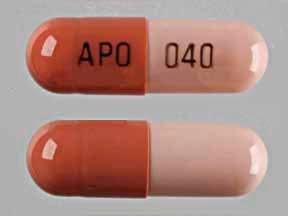
Prilosec Coupons & Savings Card – Discount Prices from $4.16
Brand for: Omeprazole
My prescription
Edit
40MG, Omeprazole (30 Capsule Delayed Releases)
Select pharmacy

CVS
$19.54
COUPON PRICE
Walmart
$4.16
COUPON PRICE
Walgreens
$10.64
COUPON PRICE
Albertsons
$12.77
COUPON PRICEPrilosec savings card
Show this card to your pharmacist
Walmart
$4.16
BIN
ID
PCN
GRP
019876
LH54DF9B5A
CHIPPO
LHX
Powered by
Related proton pump inhibitors prescriptions
More prescriptions for heartburn
Related proton pump inhibitors prescriptions
More prescriptions for heartburn
Price history for Prilosec (brand) & Omeprazole (generic)
30 Capsule Delayed Releases, 40MG
Average retail price for Prilosec
Average retail price for Omeprazole
Average SaveHealth price for Omeprazole
Our price history data is based on aggregated prescription data collected from participating pharmacies in America. Our prescription data updates daily to reflect the latest price changes. If you notice a missing data point, it means there wasn't sufficient data available to generate a monetary value for that date.
Over the last 12 months, the average discount price of Prilosec is $14.20 using the SaveHealth savings card. That's an average savings of 21.29% on Prilosec with our discount card.
*Retail prices are based on pharmacy claims data, and may not be accurate when we don't have enough claims.
Prilosec (Omeprazole) dosage forms
Dosage Quantity Price from Per unit 10MG 14 Capsule Delayed Releases $3.78 $0.27 10MG 30 Capsule Delayed Releases $5.24 $0.17 10MG 60 Capsule Delayed Releases $7.98 $0.13 10MG 90 Capsule Delayed Releases $17.22 $0.19 10MG 180 Capsule Delayed Releases $28.11 $0.16 20MG 14 Capsule Delayed Releases $2.96 $0.21 20MG 30 Capsule Delayed Releases $3.49 $0.12 20MG 60 Capsule Delayed Releases $4.49 $0.07 20MG 90 Capsule Delayed Releases $11.98 $0.13 20MG 180 Capsule Delayed Releases $20.35 $0.11
| Dosage | Quantity | Price from | Per unit |
|---|---|---|---|
| 10MG | 14 Capsule Delayed Releases | $3.78 | $0.27 |
| 10MG | 30 Capsule Delayed Releases | $5.24 | $0.17 |
| 10MG | 60 Capsule Delayed Releases | $7.98 | $0.13 |
| 10MG | 90 Capsule Delayed Releases | $17.22 | $0.19 |
| 10MG | 180 Capsule Delayed Releases | $28.11 | $0.16 |
| 20MG | 14 Capsule Delayed Releases | $2.96 | $0.21 |
| 20MG | 30 Capsule Delayed Releases | $3.49 | $0.12 |
| 20MG | 60 Capsule Delayed Releases | $4.49 | $0.07 |
| 20MG | 90 Capsule Delayed Releases | $11.98 | $0.13 |
| 20MG | 180 Capsule Delayed Releases | $20.35 | $0.11 |
| 40MG | 30 Capsule Delayed Releases | $4.16 | $0.14 |
| 40MG | 14 Capsule Delayed Releases | $3.28 | $0.23 |
| 40MG | 60 Capsule Delayed Releases | $5.83 | $0.10 |
| 40MG | 90 Capsule Delayed Releases | $13.99 | $0.15 |
| 40MG | 180 Capsule Delayed Releases | $24.28 | $0.14 |
What is the downside of taking Prilosec?
Prilosec, also known as omeprazole, can have several potential downsides or side effects. Common side effects may include headache, nausea, vomiting, diarrhea, stomach pain, gas, constipation, or fever. Long-term use of Prilosec may lead to more serious risks such as vitamin B12 deficiency, low magnesium levels, and an increased risk of bone fractures. Additionally, there may be an increased risk of kidney issues and Clostridium difficile infection in the intestines. It is important for individuals to discuss any concerns and potential risks with their healthcare provider.
What is the Canadian equivalent of Prilosec?
The Canadian equivalent of Prilosec is Omeprazole. It is available under various brand names in Canada, including Losec.
Is Prilosec safe for long term use?
Prilosec, or omeprazole, is generally considered safe for long-term use when prescribed by a healthcare provider. However, long-term use may be associated with certain risks, such as nutrient deficiencies (e.g., vitamin B12 and magnesium), increased risk of bone fractures, and potential kidney issues. It is important for individuals to have regular follow-ups with their healthcare provider to monitor for any potential side effects and to ensure that the benefits of continued use outweigh the risks.
